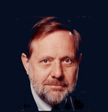Five UCLA faculty members are among the newest class of the American Academy of Arts and Sciences, one of the nation's oldest and most prestigious honorary societies and independent policy research centers.
Drawn from the sciences, the arts and humanities, business, public affairs and the nonprofit sector, the academy's 186 new fellows and 12 foreign honorary members are leaders in their fields and include recipients of the Nobel Prize, the National Medal of Science, the Pulitzer Prize, the Fields Medal, MacArthur and Guggenheim fellowships, and Grammy, Emmy, Academy and Tony awards.
UCLA is among the top six institutions in the number of 2013 fellows, along with UC Berkeley, the Massachusetts Institute of Technology, Harvard, Princeton and Stanford.
The UCLA fellows are:
Robert Allen Bjork
Distinguished research professor, psychology
Distinguished research professor, psychology
Bjork's research focuses on human learning and memory and on the implications of the science of learning for instruction and training, including identifying learning techniques that enhance long-term learning. He has served as editor of the journals Memory & Cognition, Psychological Review, and Psychological Science in the Public Interest and is past president or chair of the American Psychological Society, the Western Psychological Association, the Psychonomic Society and the Society of Experimental Psychologists, among others. Bjork is a recipient of UCLA's Distinguished Teaching Award and other honors, including the Claude Bernard Distinguished Lectureship Award from the American Physiological Society and the Society of Experimental Psychologists' Norman Anderson Lifetime Achievement Award. He is former chair of UCLA's psychology department.
Professor at the Thelonious Monk Institute of Jazz Performance, UCLA Herb Alpert School of Music
With a career spanning five decades, Hancock, who has earned 14 Grammys and one Oscar, is considered one of jazz music's most influential pianists and composers. In addition to his accomplishments as an artist, he holds the creative chair for jazz with the Los Angeles Philharmonic Association and is a founder of the International Committee of Artists for Peace. Hancock was named Commandeur des Arts et des Lettres by the French government for his significant contributions to the arts in 2010 and was designated an honorary UNESCO Goodwill Ambassador in 2011 for his dedication to promoting peace through dialogue, culture and the arts.
Distinguished professor of history
Jacob has played a critical role in shedding light on how the scientific and theoretical advancements of the Enlightenment worked their way into the mainstream of 17th- and 18th-century life. She is particularly well known for uncovering the role played by the Masonic fraternal organization in spreading the secularist concepts first promoted by such 17th-century giants as Sir Isaac Newton. Jacob has also been a pioneer in establishing a clear link between Newton's scientific advancements and the birth of the Industrial Revolution.
Professor of mathematics
Popa, a fellow of the American Mathematical Society, is an expert in the branches of mathematics known as functional analysis/operator algebras and ergodic theory, among others. From 2000 to 2005, he elaborated a revolutionary new method for classifying operator algebras associated with actions of groups on measure spaces, which led to the solution of many mathematical problems that were believed to be unsolvable for several decades. Popa earned his doctorate from Romania's University of Bucharest and has been a mathematics professor at UCLA since 1987. He is the former chair of the UCLA math department and the recipient of numerous awards and honors.
Distinguished professor of history, holder of Peter H. Reill Term Chair in European History
Ruiz is an internationally recognized historian whose work focuses primarily on medieval Spain and Europe. A scholar of the social and cultural history of late medieval and early modern Castile, he has published more than a dozen books. His most recent, "The Terror of History," explores Western humanity's efforts to cope with and make meaning of the world and its disturbing history — from the existential condition and natural disasters to the endless succession of wars and other man-made catastrophes. In 2012, Ruiz was awarded the National Humanities Medal by President Obama.
Since its founding in 1780, the American Academy of Arts and Sciences has elected leading "thinkers and doers" from each generation, including George Washington and Benjamin Franklin in the 18th century, Daniel Webster and Ralph Waldo Emerson in the 19th, and Albert Einstein and Winston Churchill in the 20th. The current membership includes more than 250 Nobel laureates and more than 60 Pulitzer Prize winners.
"Election to the academy honors individual accomplishment and calls upon members to serve the public good," said Leslie C. Berlowitz, the academy's president. "We look forward to drawing on the knowledge and expertise of these distinguished men and women to advance solutions to the pressing policy challenges of the day."
The new class will be inducted at a ceremony on Oct. 12 at the academy's headquarters in Cambridge, Mass.
See the full list of 2013 fellows.
For more news, visit the UCLA Newsroom and follow us on Twitter.




